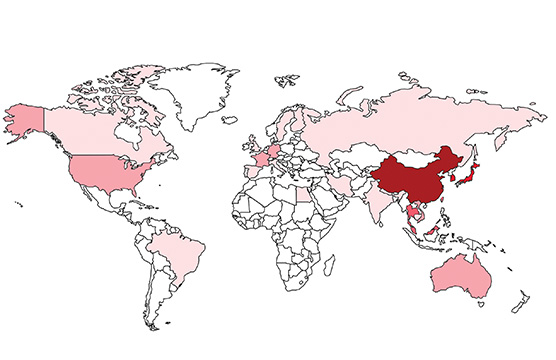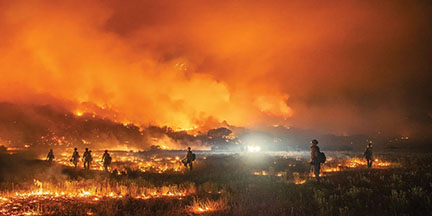COVID Chaos
The Coronavirus is rapidly expanding into what could become a global pandemic.
April 19, 2020
The January outbreak of the coronavirus in Wuhan, China, officially dubbed “COVID-19,” has gathered an immense amount of attention from governments and media outlets alike.
COVID-19 has grown from a localized infection to a worldwide emergency, with health organizations across the globe trying to tackle its incredible infection rate.
The virus has rocketed past the infection numbers seen in the infamous SARS outbreak, another virus which ravaged China in 2003. Both viruses have severe respiratory complications, and of course, both have proven to be potentially fatal.
In just a few months, the coronavirus has managed to infect a staggering 63,800 people in mainland China as of Feb. 16, with just over 3,000 dying since the outbreak began in December. To date there are 200 official cases reported in the U.S.
The disease has far-reaching implications beyond simply a plague, however; it has already caused significant damage to the global economy in multiple sectors.
For one, China is the world’s paramount manufacturer and exporter of products, and this outbreak has seriously affected their ability to produce both due to inhibited manpower and global paranoia around the idea that their goods may be contaminated.
It has limited the travel industry, with many global airlines restricting their flights to and from China and other countries and cruise ships across the world are being docked and placed in quarantine in case of infection.
The Chinese government has taken aggressive quarantine measures in an attempt to curb the spread of the virus, including the rapid construction of new hospitals in infected areas and the mass-quarantine of key cities such as Wuhan, where the outbreak first began.
The government is taking a much different route to their method for containing SARS, which was predicated on slow action and constant efforts by the government to cover up the severity of the disease.
However, this time around, the government appears to be taking fast-widespread actions to shut the rapidly expanding virus down in its tracks.
It can be difficult to tell with China due to the government’s reserved and private nature, however even the official rhetoric suggests that the country is mobilizing quickly to tackle the threat. Despite this, though, both the infection count and death toll continue to climb, although the chance of death remains statistically low for those infected.
At Laguna, there are a number of international students from China who are directly affected by this emergency, and some who have launched efforts to combat it.
Senior Vivian Hu launched an online campaign to raise money to purchase protective face masks for those still living in heavily affected areas. These masks have been at a shortage for weeks as Chinese citizens order them en masse, leaving many who were too late to order unguarded in these contaminated areas.
International student senior Jack Zhang said, “People who are not directly affected can help by donating to relief organizations. More importantly, it is important that people exercise empathy for those who are affected by this tragedy.”


















